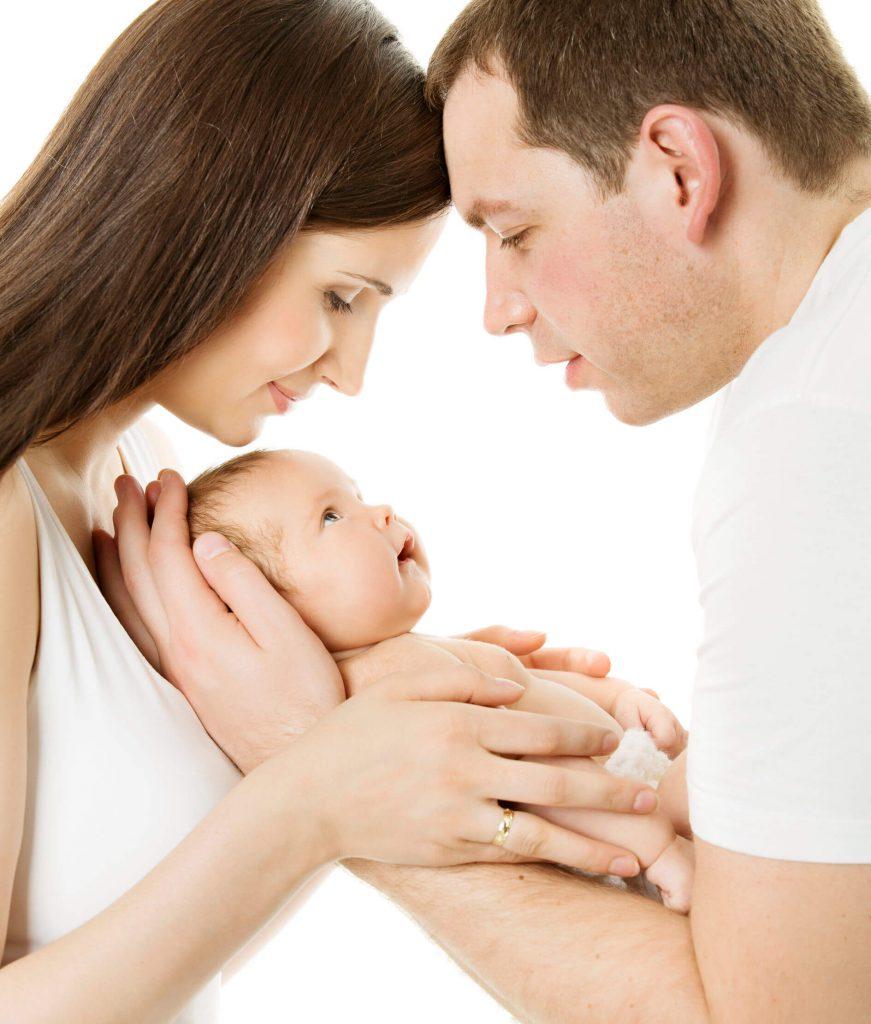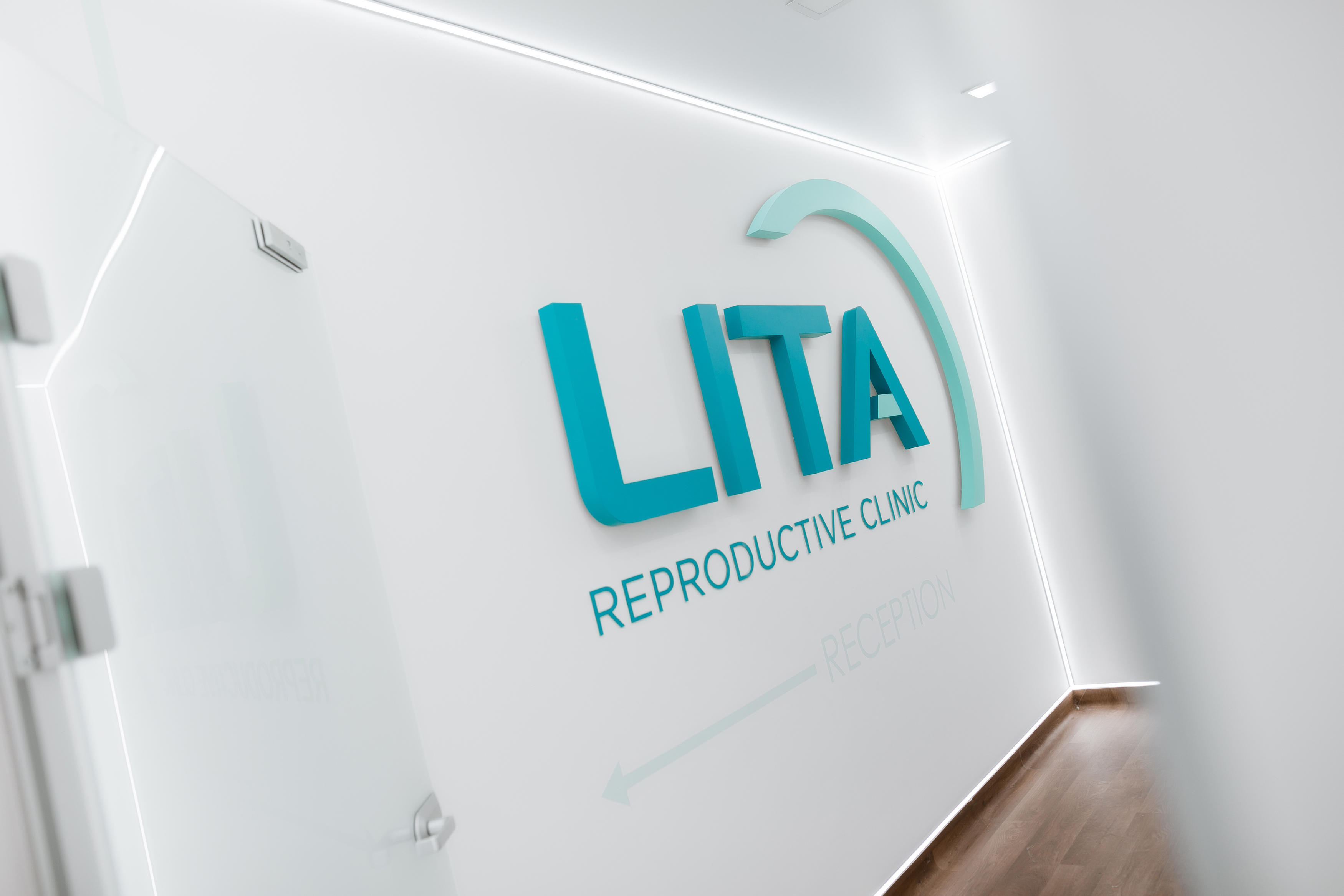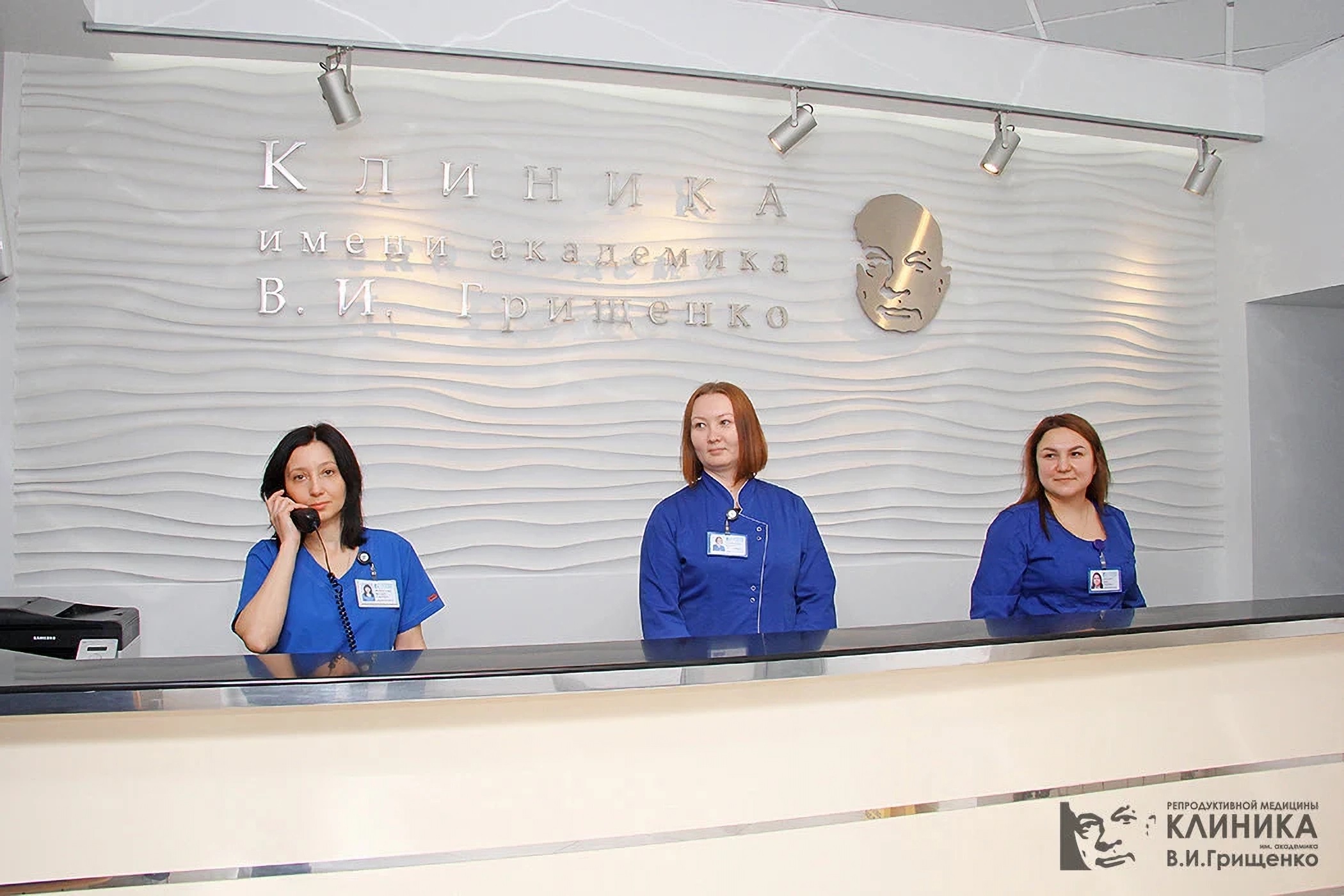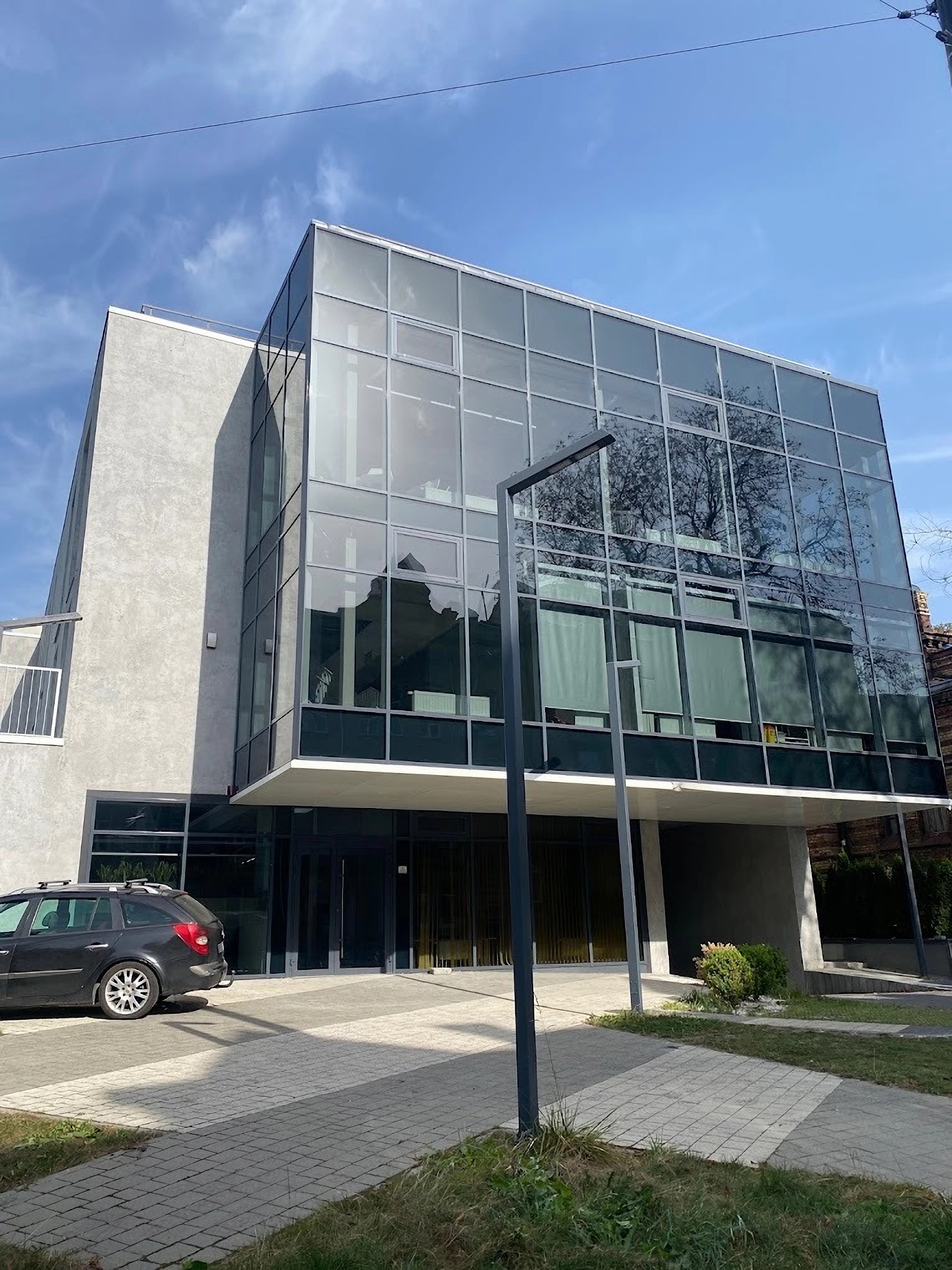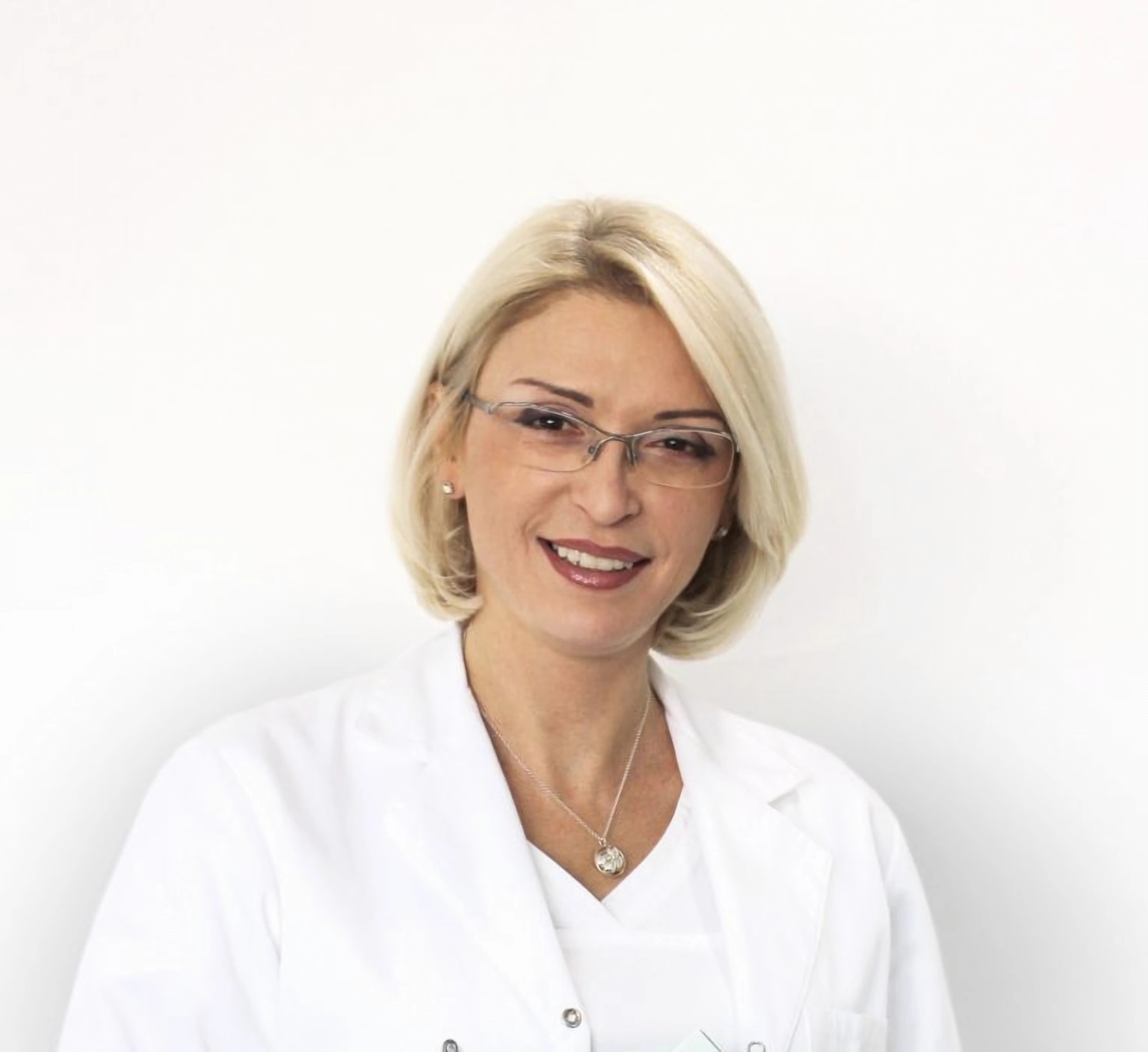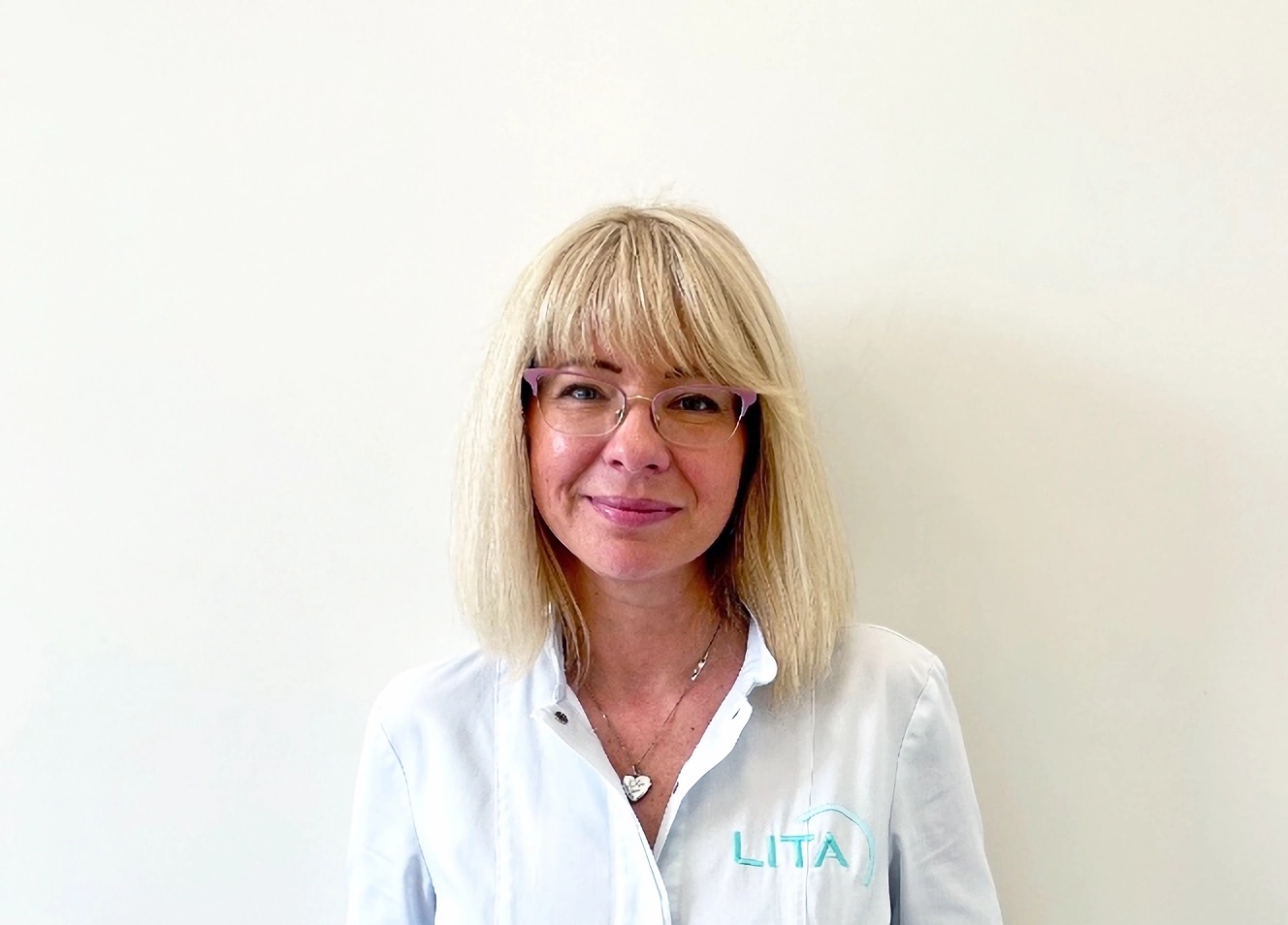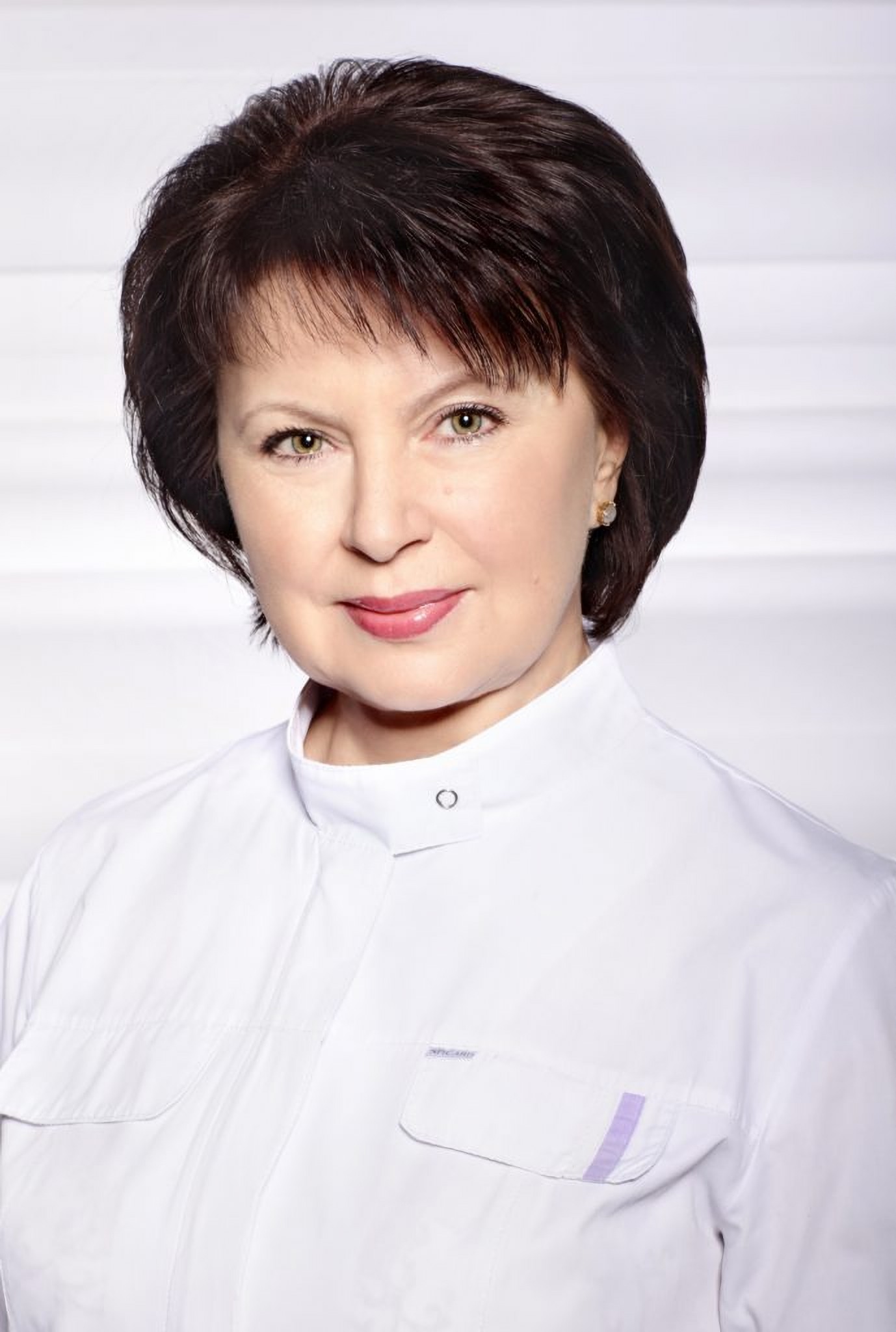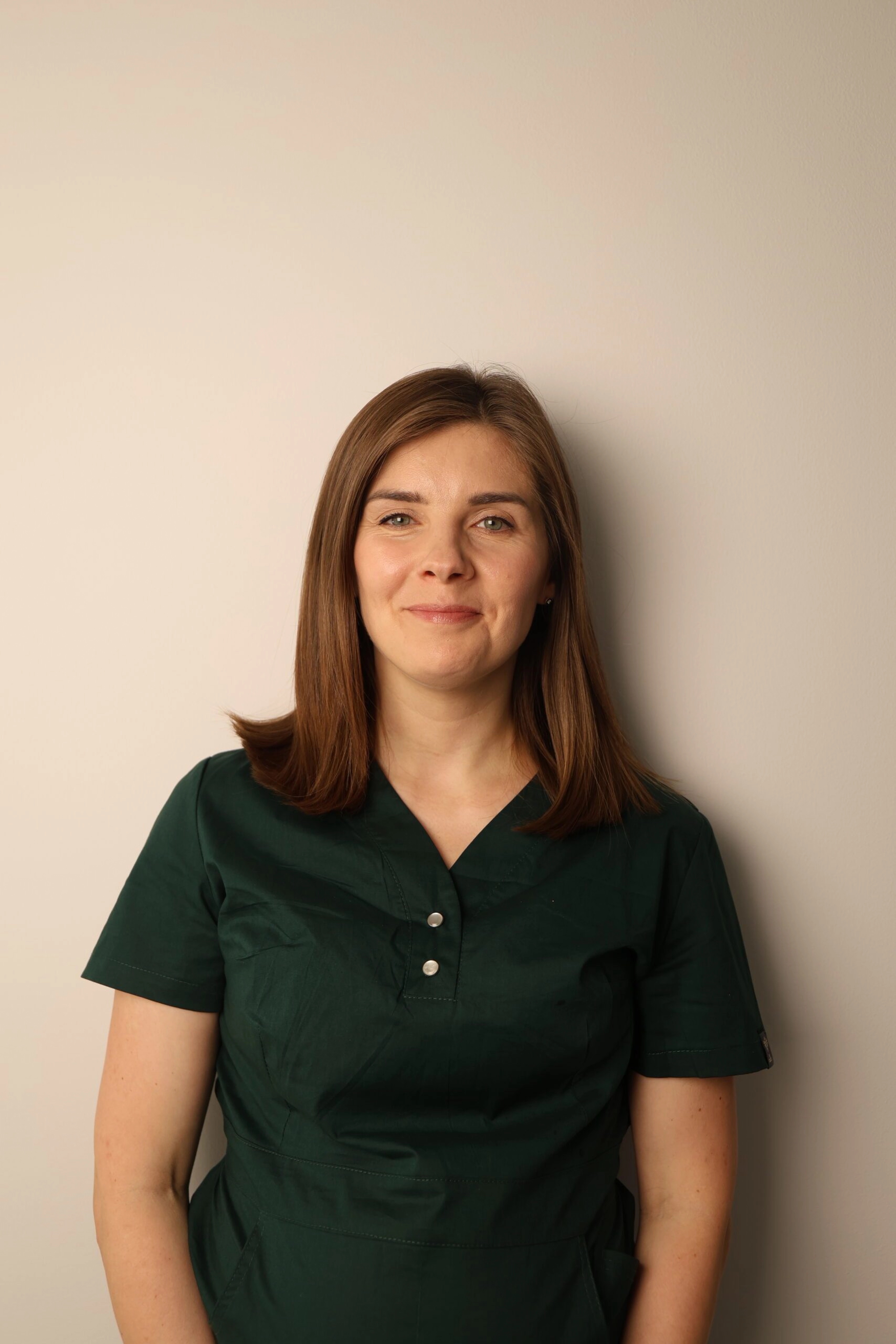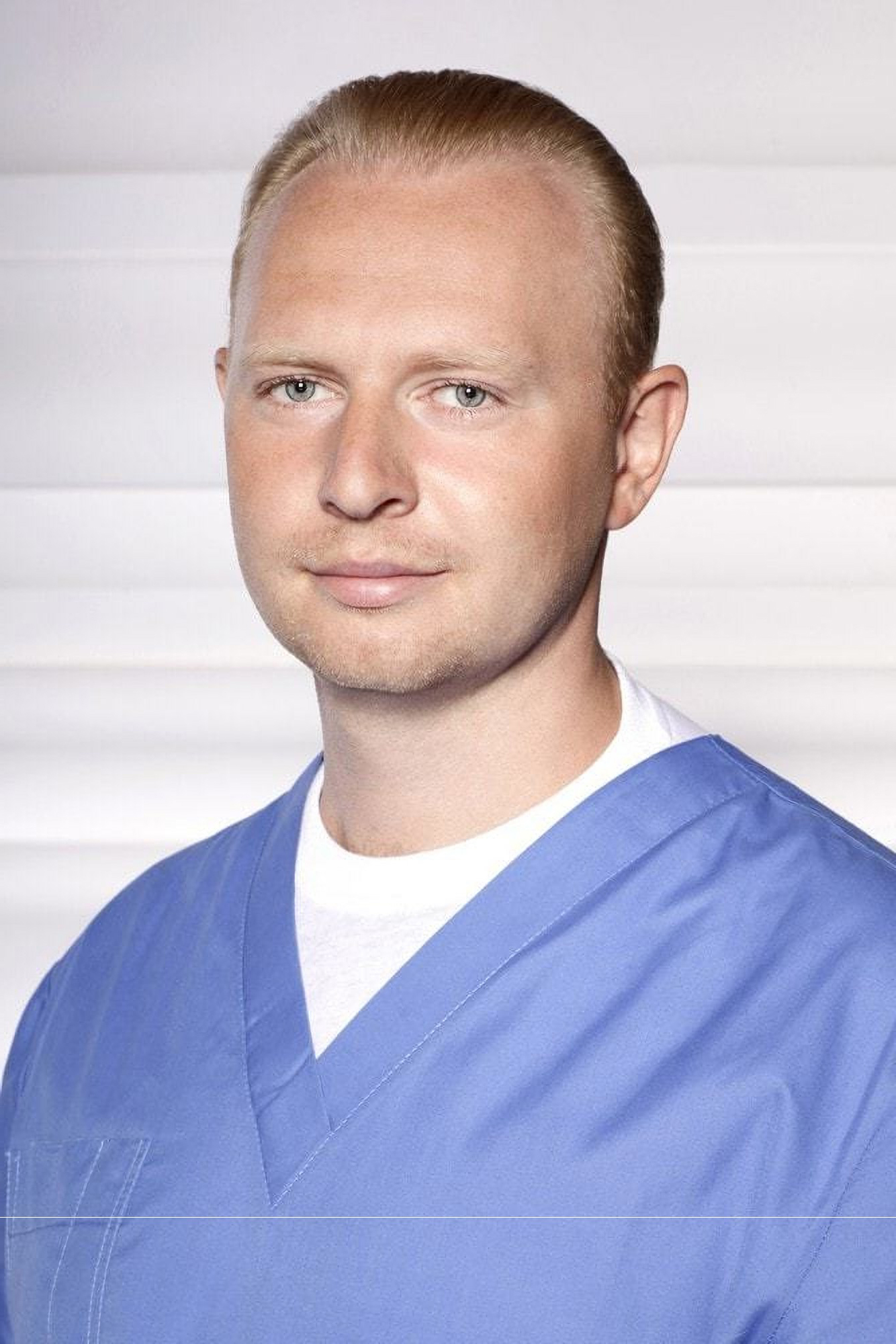Consultation with a doctor of reproductology
How do we organize your medical trip?





First reproductologist consultation
Any couple, going to a reproductologist for the first time, wants to receive answers to a thousand questions of high importance for them immediately:

- What therapy will be effective in our case?
- How long will the treatment last, how successful will it be?
- What will we do if the methods proposed do not help solve our problem?
- How much will the full scope of medical procedures cost?
Unfortunately, the reality is that often the doctor is not able to give accurate answers even after several months of communicating with the couple, conducting numerous additional tests and the therapy. And this does not depend on the professionalism of the doctor.
The results of ART use depend only 50% on the doctor. And you can be sure that they will do their best so that their knowledge, efforts and experience resulted in success. However, factors that modern medicine is unable to influence account for the remaining 50%. Therefore, a couple who begins their difficult and long journey to a long-awaited child should not only believe in their doctor, but in themselves and be confident in their desire to give birth to a healthy baby.
If you are considering different options and services related to assisted reproductive technology, here some information to help you make an informed decision.
Doctors See all doctors
Joint decision of the couple
It is vitally important that future parents decide on the need for infertility treatment together. If this decision is made only by one of the partners, and the second does everything that they are supposed to, but do not strive for a positive result, then the doctor can confidently say that the probability of success is significantly reduced.
Before deciding whether to address to ART, discuss everything with your partner, evaluate the pros and cons, and make this decision together.
The “best” age for IVF
Usually, an initial visit to a reproductologist follows frequent, sometimes many year visits to a gynecologist or urologist in an attempt to solve the existing problem with simpler and less costly methods. The reproductologist is perceived as the instance of last resort, they are consulted with when the treating doctor fails to help the couple become pregnant. This is reasonable if the woman is not older than 33-35 years old - in this case she has time for waiting and experimenting. For healthy couples, nature gives only a 15-20% chance of becoming pregnant during the 24 hours the month when a woman is fertile.
Such conditions give reasons to assume that the normal period from the occurrence of a desire to become pregnant to pregnancy itself can range from one month to one year. However, for women over 33-35, each month of delay reduces the chances of becoming pregnant significantly even with the help of assistive technologies, therefore, if pregnancy does not occur within six months, it is recommended that you consult a reproductive specialist.
Is it obligatory for the both to come?
If this is your first time going to a consultation with a reproductologist, it is best to go to the doctor with a partner. The specificity of methods of reproductive medicine is that, regardless of the problem, treatment procedures are performed for both partners, even if the couple is infertile solely because of the male or female factor. In addition, a visit to the reproductologist is a very serious step for the couple, therefore it will be correct if the partners take this step together.
Most couples are very worried before their first visit to the reproductologist. Some patients who come to the first appointment experience a practically euphoric feeling from the fact that they themselves recognized the existence of the problem and got on the path of solving it. The long expectation of pregnancy (tracking the cycle, measuring the temperature and “scheduled sex”) is a thing of the past and they are finally talking to a specialist who will help make the dream come true. For others, the fear of waiting for the doctor’s verdict is so great that it overshadows all other feelings.
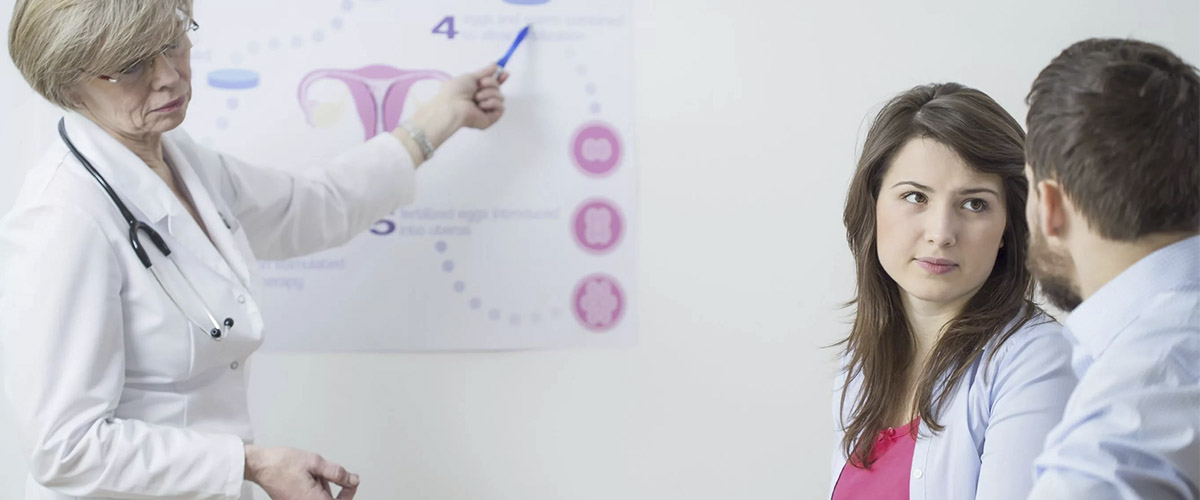
What will happen during the first consultation of the reproductologist?
Usually, at the first consultation, a reproductologist asks questions:
- about diseases that partners have or have had;
- possible pregnancies and abortions of a partner;
- the results of gynecological and urological examinations.
Be also ready to answer very intimate questions about your sex life, relationships between partners, the confidence of both partners in the desire to have children.
Most of these questions may seem awkward, uncomfortable, irrelevant to the existing problem. However, no doctor will ask you more than what is really needed to make a diagnosis and get a complete picture for you. The doctor has no task to embarrass patients with their questions. Just like patients, there is no need to tell the doctor more than they are willing to tell.
Why does the first consultation last more than an hour?
 The task of the specialist at the first consultation is also to answer the questions accumulated by future parents in as much detail as possible, as well as try to dispel all doubts. You should not think that after the first conversation you will clearly know why your couple has a problem of infertility, what factors causes it.
The task of the specialist at the first consultation is also to answer the questions accumulated by future parents in as much detail as possible, as well as try to dispel all doubts. You should not think that after the first conversation you will clearly know why your couple has a problem of infertility, what factors causes it.
With a high degree of probability, the studies that you have already done will not be enough to make a diagnosis: the doctor will prescribe additional tests, an ultrasound scan, and ask the partner to come for a second consultation on a specific day of the cycle for additional procedures. Be prepared for the fact that before the start of treatment some more time may elapse, additional visits to a specialist will also be required.
If you have a diagnosis of infertility on your hands and its causes are clearly established, then as a result of the first conversation, you can expect to get a clear treatment plan, where the schedule and costs of all the proposed procedures will be prescribed.
Be aware that this information may change during the treatment process - the final dates and figures may turn out to be different, which is connected, first of all, to individual changes that constantly occur in your body.
Well begun is half done
Thus, the medical results of the first conversation can only be called preliminary, so the psychological results are more important. Medicines, techniques, the doctor’s experience, the patient’s medical problems determine only 50% of the success of treating infertile couples. Another 50% is the pair’s attitude toward success, and their psychological readiness to trust their doctor. There is no confidence in the positive outcome and no trust to the doctor – there is no success. The best forecasts remain unrealized if the patient is afraid of the doctor, does not believe them, does not believe his partner, or does not believe that this first attempt will be a success.
You need to be prepared that your doctor may suggest different approaches for your situation, such as:
- Surrogacy.
- Sperm banking.
- IVF.
- Egg donation.
- Prenuclear transfer.
- Intrauterine insemination (IUI/IUI).
You will succeed!
Different couples come to us with completely different problems. Unfortunately, sometimes even after the very first appointment, we can say with confidence that with this pair we will not succeed, even if the medical parameters are in perfect order.
It will not work, because there is no trust, no contact, the human factor does not work. On the other hand those, even with minimal medical chances for success, cause confidence in the positive outcome of their case.We will do our best, and maybe not at the first attempt, but everything will work out, because their desire to have children can defeat any medical obstacles.





